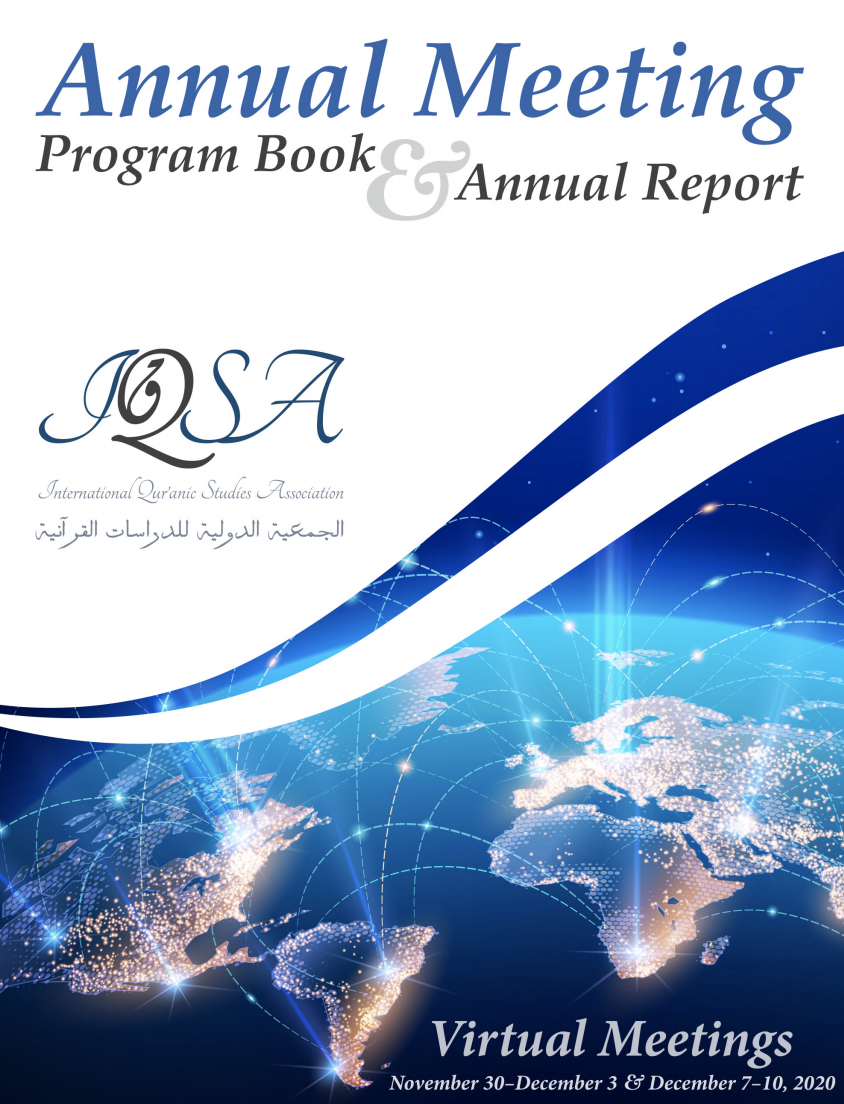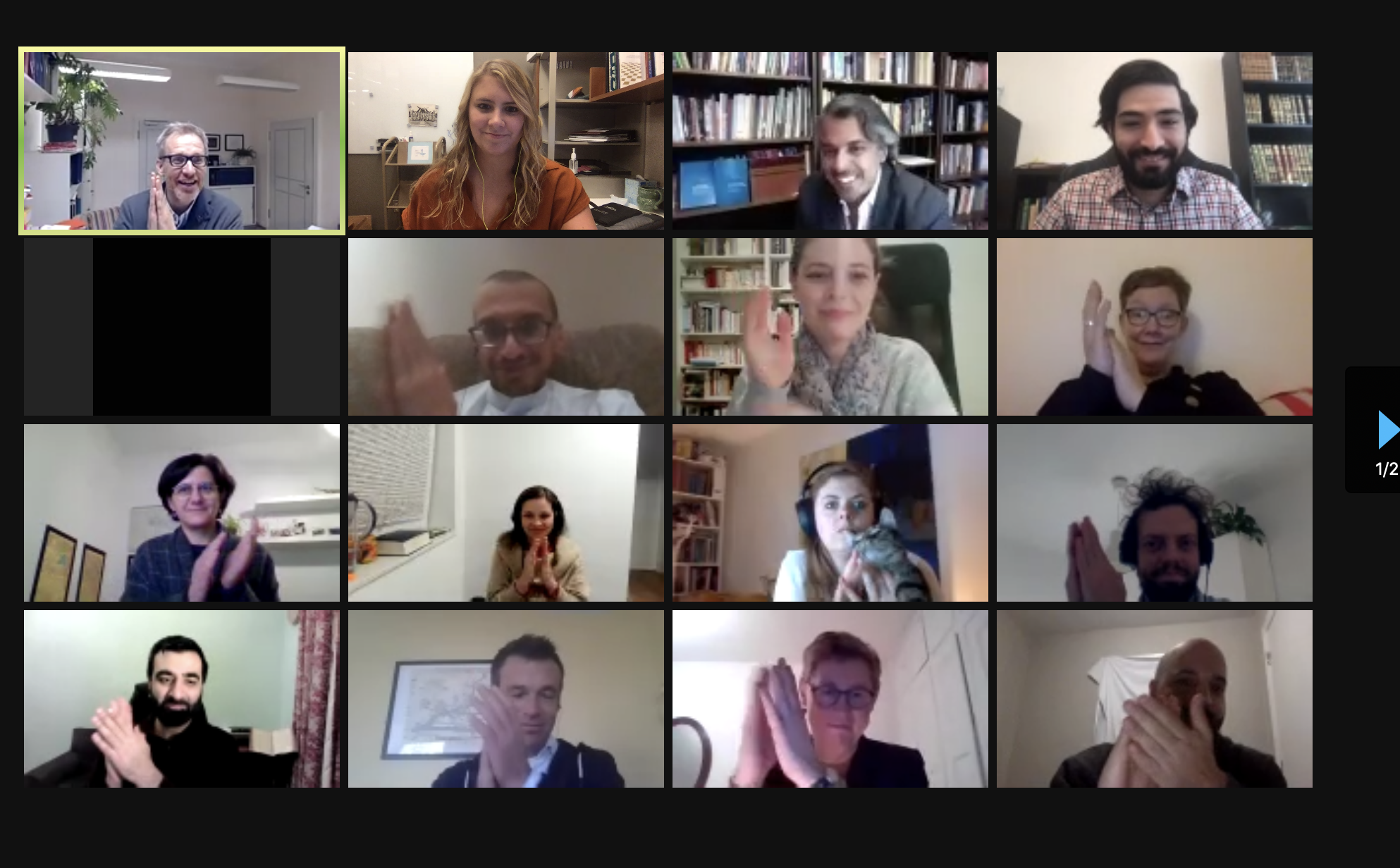 The International Qur’anic Studies Association’s Annual Meeting, usually an occasion for scholars to come together for a weekend of research and reunion, took a slightly different form this year, though still offering an opportunity to hear the latest scholarship and see (at least some) familiar faces. Rather than an in-person meeting, the COVID-19 pandemic prompted IQSA (along with the American Academy of Religion and the Society of Biblical Literature) to shift to a virtual format with talks and special events spread out over two weeks.
The International Qur’anic Studies Association’s Annual Meeting, usually an occasion for scholars to come together for a weekend of research and reunion, took a slightly different form this year, though still offering an opportunity to hear the latest scholarship and see (at least some) familiar faces. Rather than an in-person meeting, the COVID-19 pandemic prompted IQSA (along with the American Academy of Religion and the Society of Biblical Literature) to shift to a virtual format with talks and special events spread out over two weeks.
Despite the changes, the association was still able to hold twelve panels on topics ranging from the Qurʾān’s relationship with the Bible or the Late Antique milieu to manuscript studies and exegetical reflections. Talks were broadcast live around the globe, giving speakers the ability to answer questions from the audience and facilitate communication between participants via the chat and Q&A features. Events that typically take place over light refreshments like the General Reception, Business Meeting, and Graduate Student Luncheon also transitioned to the Zoom platform. Rounding out the program was a Presidential Address from Asma Hilali (which opened the conference on November 30) and a Closing Session on December 10 looking back at the panoply of topics probed, debated, and defended by the forty-one panelists.
 While of course members would prefer to be able to meet together face to face—and despite the undeniable reality of Zoom fatigue—the benefit of the virtual format was in opening up the conference to scholars for whom travel to the traditional forum would be prohibitively expensive. This was reflected in the strong attendance across the board for this year’s talks; despite the travails of scheduling, technology, and different time zones, most panels drew a comparably sized audience as they would have in a more traditional year.
While of course members would prefer to be able to meet together face to face—and despite the undeniable reality of Zoom fatigue—the benefit of the virtual format was in opening up the conference to scholars for whom travel to the traditional forum would be prohibitively expensive. This was reflected in the strong attendance across the board for this year’s talks; despite the travails of scheduling, technology, and different time zones, most panels drew a comparably sized audience as they would have in a more traditional year.
Turning to the future, the IQSA community is hoping for a faraj after the shidda of 2020 and looking forward to future conferences that build off the lessons of this year’s unusual circumstances (not to mention actually seeing each other in the flesh!). The ninth century scribe and poet Abū al-ʿAbbās Ibn Thawābah, anticipating to his freedom from prison, offers us some solace—and hopefully augurs a better 2021 for our modern world as well:
عواقبُ مكروهِ الأمور خيارُ … وأيّامُ سوءٍ لا تدومُ قصارُ
وليس بباقٍ بؤسُها ونعيمُها … إذا كَرَّ ليلٌ ثمّ كَرَّ نها
Dire events lead to good things.
Hard times are short: they pass.
Pain does not endure, but time
brings joy, and joy will last.
(al-Tanūkhī, al-Faraj baʿd al-shidda, trans. Julia Bray: Stories of Piety and Prayer: Deliverance After Adversity, 217; the lines have also been attributed to al-Shāfiʿī)
On behalf of IQSA, we thank all of our program unit chairs, board and committee members, and participants for their unwavering support that made this unprecedented event possible. Follow us IQSA Blog, Facebook, and Twitter for updates as we transition into the New Year!
By Conor Dube (Ph.D. Candidate, Harvard University)
© International Qur’anic Studies Association, 2020. All rights reserved.
